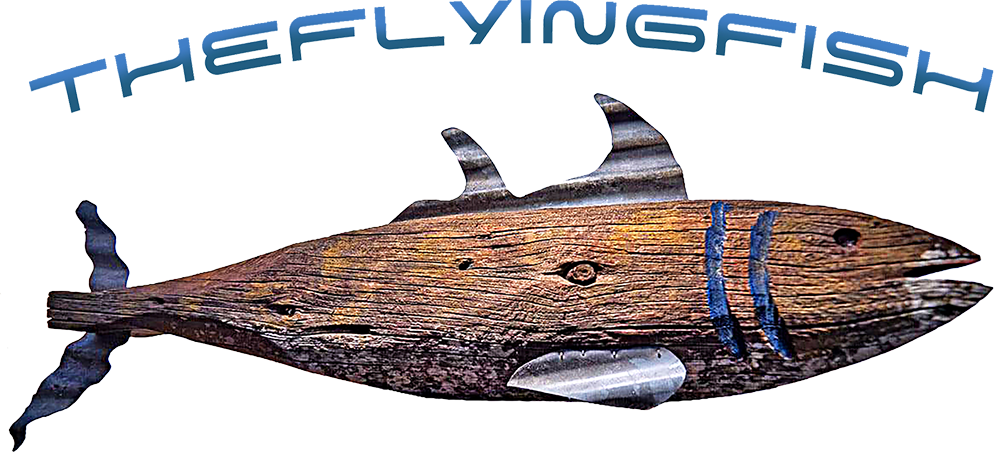Crew Focus: Killer Instincts

With Courtesy of Erica Lay & The Mallorca Bulletin. #25/1061.
Erica Lay owner of EL CREW International Yacht Crew Agency http://www.elcrewco.com/ erica@elcrewco.com
Killer Instincts: Why Are Orcas Targeting Yachts?
By Erica Lay
It sounds like something out of a nature docudrama: orcas, sleek and intelligent apex predators, seemingly developing a taste for yacht rudders. Nom nom. But for many sailors navigating the Bay of Biscay, the Portuguese coast, and down in the Gibraltar Strait, it’s become an increasingly serious concern. In recent years, dozens of incidents have been reported of orcas—also known as killer whales—ramming sailboats, damaging rudders, and in some cases, rendering vessels completely inoperable.
So what’s going on? Are orcas just having a bit of fun? Are they playing, hunting, protesting, or perhaps just showing off to their mates? Theories abound, and the truth might be somewhere in between.
“I was off the coast of Barbate when we felt the first hit,” says Tomás, a local skipper from Algeciras in the south of Spain. “At first I thought we’d struck debris. Then came the second blow, and I saw the fin. It was surreal. They weren’t aggressive exactly, but they weren’t shy either.”
Marine biologists suggest several possible explanations. Some believe the behaviour is playful—orcas are known for their curiosity and complex social interactions. Juvenile orcas, much like human teenagers, push boundaries regularly to see what they can and can’t get away with. Others argue that it’s a learned behaviour, perhaps triggered by a negative experience one whale had with a rudder, which is now being copied and taught to others.
So could this behaviour be, in fact, revenge? In 2020, a juvenile orca known as White Gladis was reportedly injured by a boat. Since then, attacks have increased in the region. While no one can confirm a direct connection, the idea of a retaliatory movement among whales has captured public imagination—and the headlines.
“They’re not out to get us,” says one anonymous yacht captain. “But they are smart, they know where the rudder is, and they’re not just bumping the hull for fun. It’s deliberate. They seem to know what they’re aiming for and I’ll be honest, it’s unnerving.”
That’s one way to describe it. All sounds a bit Jaws 4, doesn’t it?
Some orcas appear to go straight for the kill—well, the steering, anyway—snapping rudders off in minutes. Others simply circle the yacht, poke and prod with their noses, or slap their tails. No two encounters seem to be exactly alike, which only adds to the intrigue and anxiety.
Meanwhile, sailors are being urged not to panic. Marine organisations have published guidelines for what to do during an orca encounter:
- Slow down
- Disengage the autopilot
- Don’t shout or bang on the hull
Essentially: don’t give them a reaction.
(We’ll talk more about this next week, but that’s easier said than done when your helm suddenly stops working mid-crossing.)
One charter skipper out of Cádiz recalled a particularly tense encounter:
“They stayed with us for over an hour. Just circling, nudging. One of them gave the rudder a solid knock and then drifted off. It was like it was testing us—seeing how we’d respond.”
Whether it’s teenage rebellion or strategic sabotage, the orcas have become a talking point from marina bars to marine biology labs.
At the end of the day, we’re in their backyard—so is this something we just have to put up with?
A spokesperson from Sea Shepherd France thinks so:
“We are just their guests. This is their home. We are passing through.”
For now, the phenomenon remains largely a mystery. Researchers are calling for calm and cooperation between sailors and scientists. Efforts are underway to track the orcas’ behaviour, while sailing associations are advising yachts to avoid certain hotspots and to sail in groups when possible. Some even suggest carrying decoy rudders or noise deterrents—though the long-term efficacy of these methods is still up for debate.
In the meantime, crew operating in known orca zones are keeping their fingers crossed—and their rudders reinforced.
“You respect the ocean, and you respect the animals in it,” says a small sailboat owner who was recently targeted. “But if they’re going to start dismantling our boats piece by piece, we’ll need more than respect. We’ll need a plan.”
Stay tuned for Part Two: How to Deal with Orca Encounters.
